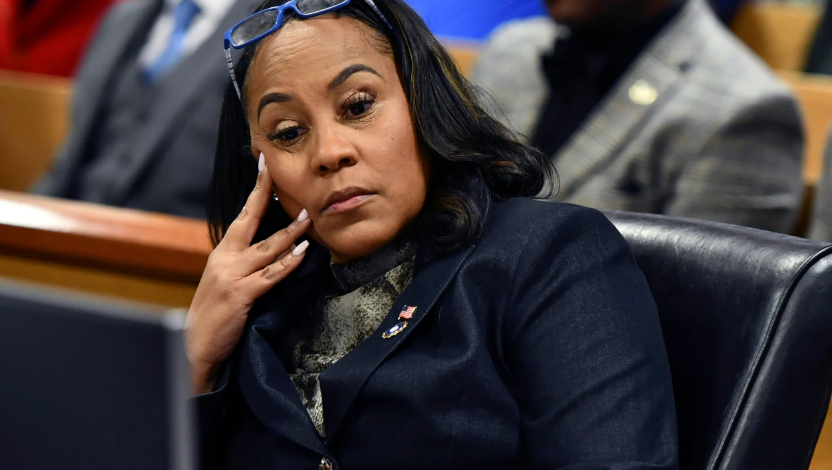Fulton County DA Fani Willis is facing increased scrutiny and criticism over her relationship with special prosecutor Nathan Wade, whom she appointed to handle the Trump election case. The latest development in this ongoing controversy involves former law partner and divorce lawyer Terrence Bradley, whom Wade is attempting to shield from testifying by invoking attorney-client privilege. However, Judge Scott McAfee has ruled that Bradley cannot avoid testifying about what he knows regarding the relationship between Willis and Wade.
The issue of cellphone evidence has also been raised in the Trump election case. The Trump team had obtained cellphone data from AT&T through a lawful subpoena which showed that Wade had visited the Hapeville neighborhood, where Willis lived, at least 35 times before he was hired as the special prosecutor.
This contradicts Wade's claim that he had only been in the area around 10 times. The data also revealed multiple late-night visits in September and November 2021, with corresponding texts or calls to Willis in the early morning. Both Willis and Wade had testified under oath that they had not spent the night together at the Hapeville address.
Willis has filed a response to the allegations, arguing that the cellphone data should be excluded from the case for various reasons, including its "little evidentiary value." She also claims that the data contains opinion evidence and was not properly obtained. However, the Trump team has pointed out that the data was obtained through a lawful subpoena and is not opinion evidence. They also noted that this type of cellphone data has been used in other cases in Georgia, raising concerns about the impact on other cases if the validity of this evidence is now questioned by the Fulton County DA.
The Trump team also addressed Willis' failure to address the specific dates highlighted in the cellphone data. On September 11, 2021, Wade's phone was tracked leaving the Doraville area and arriving at the Hapeville address at 10:45 PM, where it remained until 3:28 AM the following day.
On November 29, 2021, Wade's phone was tracked leaving the East Cobb area, where he lived, just after midnight and arriving at the Hapeville address at 12:43 AM, where it remained until 4:55 AM. Both of these dates are significant, as they appear to contradict the testimony given by Willis and Wade about the timeline of their relationship.
In response, the Trump team is calling for Willis and Wade to testify about the events that occurred on these specific dates. This development further highlights the need for transparency and accountability within the justice system. The role of a prosecutor is to uphold the law and ensure justice is served, and any potential conflicts of interest or unethical behavior must be thoroughly investigated.
The ongoing controversy surrounding the relationship between Willis and Wade raises questions about their ability to fairly and impartially handle the Trump election case, and potentially other cases that may come before them.
The Fulton County DA's office has yet to comment on Judge McAfee's ruling regarding Bradley's testimony or the Trump team's response to Willis' motion to exclude the cellphone data. As the case continues to unfold, the public can only hope that the truth will be uncovered and justice will be served. Court cases, particularly those involving high-profile individuals and contentious issues, must be conducted with the utmost integrity to maintain public trust in the justice system.
The outcome of the Trump election case could have significant implications, and it is imperative that all parties involved act with honesty and transparency. Only then can a fair and just ruling be reached.

